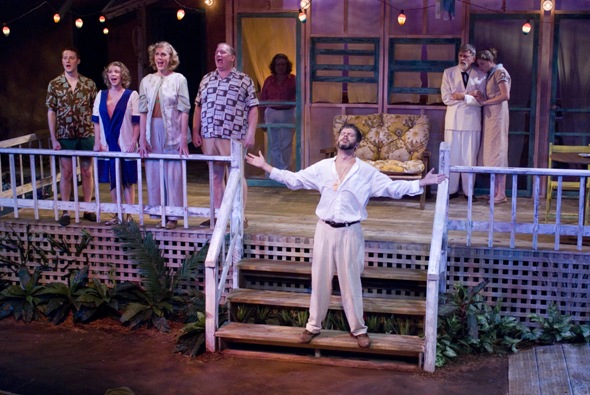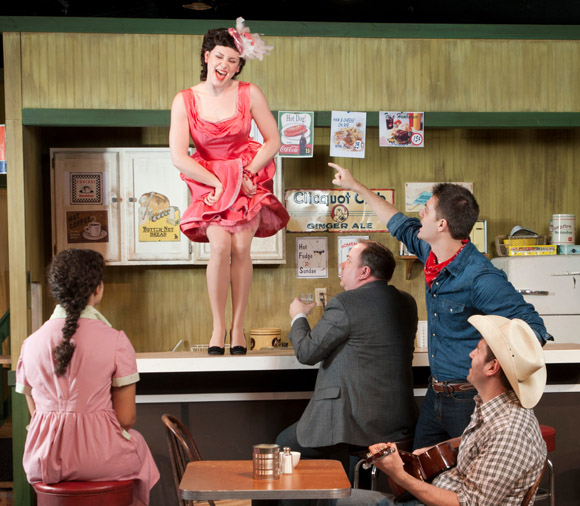The New Season: Raven Theatre cuts fresh loaf of Americana with Odets’ ‘Big Knife’
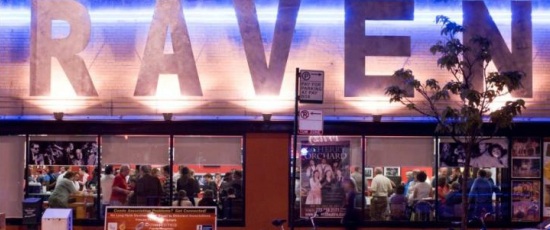 Sixth in a series of season previews: Celebrating its 30th anniversary, Raven will get underway with Odets’ psychological study of a tarnished Hollywood film star. The season opens Sept. 11.
Sixth in a series of season previews: Celebrating its 30th anniversary, Raven will get underway with Odets’ psychological study of a tarnished Hollywood film star. The season opens Sept. 11.
By Lawrence B. Johnson
Technically, it may not be a Chicago premiere, but Clifford Odets’ “The Big Knife,” which opens Raven Theatre’s 30th anniversary season, would be a rarity on any stage and artistic director Michael Menendian is eager to revive this sober tale of glitzy Hollywood’s dark side.
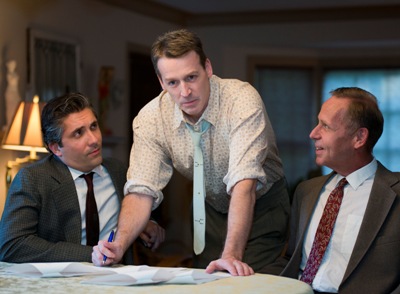 Resonant of Odets’ own experience in Hollywood in the 1940s, “The Big Knife” sharpens its blade on Charlie Castle, a film star who has settled for compromise so often that he’s turned into a different man. Menendian says the play apparently was done once or twice in modest Chicago productions decades ago and has seldom shown up on stage anywhere.
Resonant of Odets’ own experience in Hollywood in the 1940s, “The Big Knife” sharpens its blade on Charlie Castle, a film star who has settled for compromise so often that he’s turned into a different man. Menendian says the play apparently was done once or twice in modest Chicago productions decades ago and has seldom shown up on stage anywhere.
Menendian, who co-founded Raven with his wife JoAnn Montemurro in 1983, says leading off the season with Odets nicely banners the company’s core mission of presenting classic Americana.
“We butter our bread with American theater,” he says. “Odets was a bit like the David Mamet of his time. He had this unique grasp of the language, the slang, the idioms. And this play reaches across many issues like sexuality, sexual prowess, promiscuity, adultery – themes that were not so common in plays of the late ‘40s and early ‘50s.”
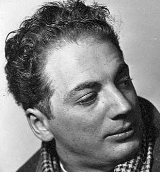 The 2012-13 season in brief:
The 2012-13 season in brief:
- “The Big Knife” by Clifford Odets (Sept. 11-Nov. 11): Menendian, who’s directing the show, calls it a powerful psychological study of an actor whose marriage is on the rocks, largely because his wife has watched him become a shell of the man he was. “But there’s also a huge skeleton in the closet,” says Menendian. “The top producer of the studio he works for is blackmailing him to force him into signing a long-term contract. This play has all the great zing that Odets is known for. I was looking for an Odets project, and I was drawn to ‘The Big Knife’ because the play represents him in his maturity.”
 “Boy Gets Girl” by Rebecca Gilman (Jan. 15-March 2): This psycho-thriller from 2000 made Time magazine’s list of Best Plays and Musicals of the Decade for Alabama-born, Chicago-based playwright Gilman. It’s the story of what happens when a blind date morphs into a waking nightmare. “This one really grabbed me,” says Menendian. “It’s a very tense story of power and control. A fairly experienced woman in her late 30s, a successful writer and editor for a New York magazine, goes out on blind date and ends up being stalked by the guy. It’s about her reaction to his ability to dictate her life and her choices – choices that determine her survival. It has a Hitchcock-like quality that should have the audience gasping.”
“Boy Gets Girl” by Rebecca Gilman (Jan. 15-March 2): This psycho-thriller from 2000 made Time magazine’s list of Best Plays and Musicals of the Decade for Alabama-born, Chicago-based playwright Gilman. It’s the story of what happens when a blind date morphs into a waking nightmare. “This one really grabbed me,” says Menendian. “It’s a very tense story of power and control. A fairly experienced woman in her late 30s, a successful writer and editor for a New York magazine, goes out on blind date and ends up being stalked by the guy. It’s about her reaction to his ability to dictate her life and her choices – choices that determine her survival. It has a Hitchcock-like quality that should have the audience gasping.” “A Soldier’s Play” by Charles Fuller (Feb. 12-March 30): Winner of the 1962 Pulitzer Prize for drama, “A Soldier’s Play” traces the convoluted course of an investigation of the murder of a black sergeant in Louisiana near the end of World War II. Menendian calls it “a tough, incisive exploration of racial tensions and ambiguities among blacks, and between blacks and whites, that gives no easy answers and assigns no simple blame. The army chooses a black lawyer to investigate, and what unfolds is deeply revealing of racial tensions.” In a series of flashbacks, the murdered sergeant reappears with his own agenda. Says Menendian: “It’s a perspective on race relations with a novel spin.” (Fuller wrote a screen adaption, which was produced in 1984 as “A Soldier’s Story.”)
“A Soldier’s Play” by Charles Fuller (Feb. 12-March 30): Winner of the 1962 Pulitzer Prize for drama, “A Soldier’s Play” traces the convoluted course of an investigation of the murder of a black sergeant in Louisiana near the end of World War II. Menendian calls it “a tough, incisive exploration of racial tensions and ambiguities among blacks, and between blacks and whites, that gives no easy answers and assigns no simple blame. The army chooses a black lawyer to investigate, and what unfolds is deeply revealing of racial tensions.” In a series of flashbacks, the murdered sergeant reappears with his own agenda. Says Menendian: “It’s a perspective on race relations with a novel spin.” (Fuller wrote a screen adaption, which was produced in 1984 as “A Soldier’s Story.”)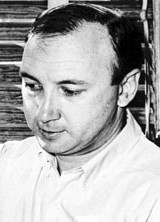 “Brighton Beach Memoirs” by Neil Simon (April 30-June 29): Based on Simon’s memories of growing up in Brooklyn in the years just before World War II, “Brighton Beach Memoirs” is a coming-of-age comedy that Menendian nonetheless describes as “one of the less jokey of his plays.” It’s about Eugene Jerome and his family, struggling through hard times – and with each other – in a familial mishmash of laughter, tears and love. “The family dynamics here are quite intriguing to me,” says Menendian. “There’s a tremendous honesty to it. The claustrophobia of families living under one roof brings out the best and worst in the family unit.”
“Brighton Beach Memoirs” by Neil Simon (April 30-June 29): Based on Simon’s memories of growing up in Brooklyn in the years just before World War II, “Brighton Beach Memoirs” is a coming-of-age comedy that Menendian nonetheless describes as “one of the less jokey of his plays.” It’s about Eugene Jerome and his family, struggling through hard times – and with each other – in a familial mishmash of laughter, tears and love. “The family dynamics here are quite intriguing to me,” says Menendian. “There’s a tremendous honesty to it. The claustrophobia of families living under one roof brings out the best and worst in the family unit.”
Getting there:
Raven Theatre, located at 6157 North Clark Street, on the corner of Clark and Granville in Chicago, primarily serves the city’s far north communities of Edgewater, Rogers Park and Andrsonville, though it can also claim a broad base of support from across the Chicagoland area. Easily accessible by car, the theater is 15 minutes from the Eden’s Expressway (Peterson exit east) and 5 minutes from the north end of Lake Shore Drive. It’s also convenient by train. Take the Red Line to the Granville station, then walk west on Granville to Clark Street.
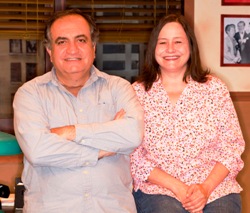 While American drama may be Raven’s bread and butter, Menendian insists the company owes its community something more like a cultural banquet. He is turning Raven into a center for the performing arts.
While American drama may be Raven’s bread and butter, Menendian insists the company owes its community something more like a cultural banquet. He is turning Raven into a center for the performing arts.
“We’re spreading our net as wide as we can, with offerings of music, dance, poetry,” he says. “We want this place to be accessible and inviting to people with many different interests. We’re creating an environment where there’s always something happening outside traditional theater.”
Two seasons ago, the theater telegraphed a special invitation to the LGBT community by dedicating one performance of each play as Out at Raven night.
“We’re at the heart of a Chicago gay scene,” Menendian says. “We know that community is culturally minded and enjoys going out, so the first Friday after each opening we do an evening with special group discounts, snacks and a talk-back – though of course anyone is welcome to come.”
The company’s essential mission, however, remains unchanged – to produce both classic and new American plays with a peppering of European masterworks. Menendian calls the occasional digression into Ibsen or Chekhov “an opportunity to compare our culture with others, to better reflect on the American experience and what defines it.”
Now 30 years into an adventure that he and his wife undertook when they were not yet 30, Menendian is also looking to a Raven future that does not include him, and he has begun to expand the ensemble.
“I’m not going to be running the show here forever,” he says. “One of my personal goals is to make sure that 10 years from now the theater remains secure in the hands of other artists. It’s important to me and JoAnn that Raven continue as a Chicago institution that will have a life after us.”
Related Links:
- Raven’s mission and history: Read it at Raventheatre.com
- Review of last season’s Raven production of William Inge’s “Bus Stop”: Read it at ChicagoOntheAisle.com
- Review of last season’s Raven production of Arthur Miller’s “The Price”: Read it at ChicagoOntheAisle.com
Photo captions and credits: Home page and top: The home of Raven Theatre on North Clark Street. Descending: Rehearsal scene from Raven’s season-opener, Clifford Odets’ “The Big Knife,” with (from left) Greg Caldwell, Jason Huysman and Chuck Spencer. (Photos by Dean LaPrairie) Playwright Clifford Odets. Playwright Rebecca Gilman. Playwright Charles Fuller. Playwright Neil Simon (Photo by Al Ravenna/Library of Congress) Raven’s co-founders and co-artistic directors Michael Menendian and JoAnn Montemurro (Photo by Dean LaPrairie) Below: Scene from Raven’s 2007 production of Tennessee Williams’ “The Night of the Iguana.” Jen Short dances on the bar in Raven’s 2011 production of William Inge’s “Bus Stop” (Photos by Dean LaPrairie)
Tags: "A Soldier's Play", "Boy Gets Girl", "Brighton Beach Memoirs", "The Big Knife", Charles Fuller, Clifford Odets, JoAnn Montemurro, Michael Menendian, Neil Simon, Raven Theatre, Rebecca Gilman

